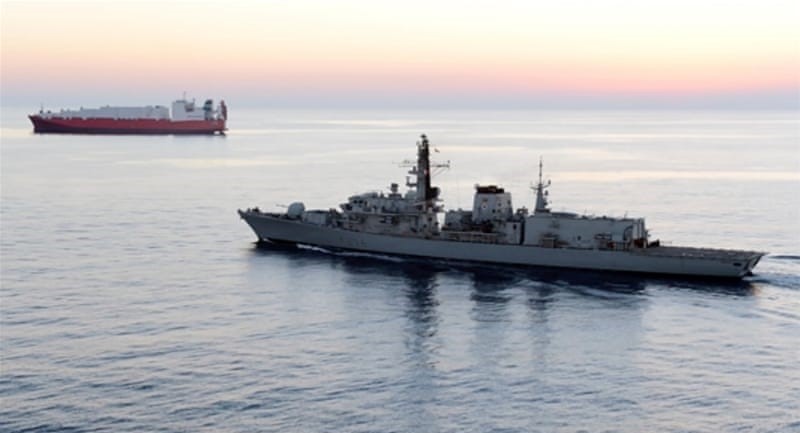LAHORE MIRROR (Monitoring Desk)– German Foreign Minister Heiko Maas has said his country will not participate in a US-led naval mission in the Strait of Hormuz, prompting a frustrated response from Washington’s ambassador to Berlin.
Maas told reporters during a trip to Poland on Wednesday that “Germany will not take part in the sea mission presented and planned by the United States,” adding the situation in the Gulf, where tensions have been rising between the US and Iran, was very serious and that everything should be done to avoid an escalation.
The US had formally requested earlier in the week that Germany and other European allies take part in the naval mission, which it said was needed to protect shipping routes in the strategic passageway through which about 20 percent of the world’s oil passes and to “combat Iranian aggression”.
The decision to not join the mission was motivated by Berlin’s belief that the US strategy of exercising “maximum pressure” against Iran was “wrong”, Maas, a Social Democrat, said.
One of the main obstacles to any German involvement in a military operation in the Gulf is opposition by the Social Democrats, the junior partners in a ruling coalition led by Chancellor Angela Merkel’s Christian Democrats.
Expressing frustration about Maas’ announcement, US Ambassador to Germany Richard Grenell spoke to the Augsburger Allgemeine about Washington’s attempts over the past weeks to get Merkel’s government to join the mission.
“Germany is the biggest economic power in Europe, this success brings global responsibilities,” Grenell told the newspaper on Thursday.
European-led mission
Separately, London last week called for a European-led mission to protect commercial shipping in the Gulf following Iran’s seizure of a British-flagged oil tanker, a move that came after British forces captured an Iranian oil tanker near Gibraltar that the United Kingdom claimed was heading for Syria in breach of European Union sanctions.
But that maritime alliance, proposed even as the US continues to press for a mission that would include its forces, which are far more powerful than those of European allies, has also failed to secure Berlin’s support.
Relations between the US and Germany have soured since President Donald Trump took office, due to disagreements on a range of issues from defence spending to trade tariffs and the NordStream 2 gas pipeline.
Berlin has also been critical of Washington’s policy on Iran in the wake of its unilateral withdrawal last year from a landmark nuclear deal Tehran signed with world powers, as well as the Trump administration’s “maximum pressure” campaign of economic sanctions aimed at forcing Iran to come to the negotiating table to strike a new deal.
“After verbally attacking Germany so many times, [Trump] wants them now to contribute to the Gulf mission,” Miguel Otero, a senior analyst at the Elcano Royal Institute, wrote on Twitter. “No wonder they say: nein!”

